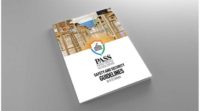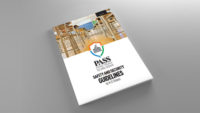New York State Department of Education Commissioner Betty A. Rosa issued a determination that lifted the nearly three-year ban on use of biometric technologies in both public and private K-12 schools in effect from December 2020. Despite objections from the New York School Boards Association, legislation enacted that year imposed a ban on any use of biometric technologies regardless of modality or purpose, until determined otherwise by the department after July 1, 2022, and a required report.
The Security Industry Association (SIA), along with industry partners and education officials in New York, raised concerns with legislators and then-Gov. Andrew Cuomo over the unintended consequences of a blanket ban prohibiting applications that clearly benefit schools and students, versus addressing specific use cases of concern. In one direct result, the governor insisted that the final measure include an exclusion for use of fingerprint technology in conducting background checks on prospective K-12 employees.
After passage, SIA continued to communicate with state officials regarding the need regarding the need for a more targeted and less harmful policy that lifts restrictions on beneficial applications of biometric technology application in the K-12 environment, particularly for safety and security. This included participation in a public hearing last October, where it was stressed that such technologies can be implemented in a way that protects student privacy and the rights of community members.
The determination this month lifts the blanket ban and now leaves it up to schools and districts to determine appropriate uses of biometric technologies. It is expected this will end disruptions to school operations aided by biometric technologies, as more than 40 New York school districts had reported utilization prior to the ban according to the department’s survey. This includes widely accepted applications for identity verification for student account access, transportation check-in, food service accounts, medication administration and other purposes, as well as safeguarding access to secure areas, logging staff time and attendance, among others.
The exception in lifting the ban is facial recognition technology, for which the purchase and use continues to be prohibited, as it has since 2020. Unfortunately, continuing this prohibition, under intense pressure from the New York American Civil Liberties Union, that had earlier sued the department over a district’s use of grant funds for the technology, means potentially life-saving applications of the technology for security purposes remain unavailable to New York schools.
The required report from the Office of Information Technology Services did not recommend that the department prohibit facial recognition technology. While it did conclude that the risks “may” outweigh the benefits, it did not thoroughly examine either when it comes to security applications, and it included outdated information and common misconceptions about the accuracy of the technology. Some have claimed there is little information available about effectiveness, yet the system used by the Lockport City School District, whose grant was the subject of the earlier lawsuit, had successfully flagged for school personnel several individuals who entered school grounds despite legally imposed restrictions (including sex offenders) during the brief months it was operational prior to the pandemic, achieving its narrow security purpose of screening adult visitors.
For more information, visit: securityindustry.org.






